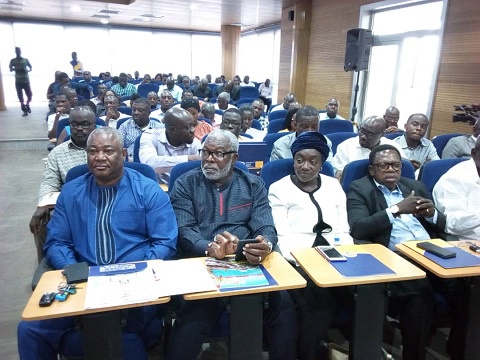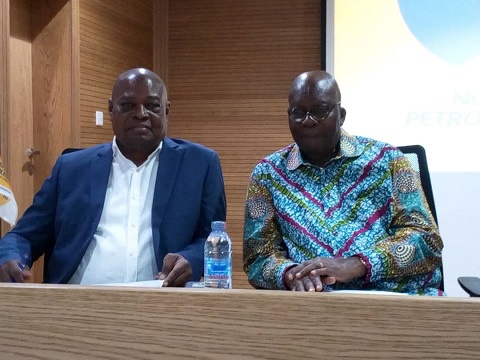The Deputy Minister for Energy in-charge of Infrastructure, Hon Joseph Cudjoe, has launched this year's Petroleum Safety Campaign which is being spearheaded by the National Petroleum Authority (NPA) with a call on Oil Marketing Companies (OMCs) to adhere to the safety protocols in the downstream sector.
He noted that in spite of the continuous efforts regulators are making to ensure the protocols are adhered to, some interest groups are also determined to frustrate the processes that will lead to an enhanced safety protocol in the downstream sector.
He, therefore, reiterated the need for industry players to take the bold step of adhering to industry safety standards through industry associations and peer review and where necessary, expose their peers who are not keeping up with the industry standards.
According to him, "This will not only complement the role of our regulators but will embolden them to take decisive disciplinary actions against offending industry players based on industry recommendations."
The National Petroleum Safety Campaign was launched in 2017 by the NPA to draw attention to the collective responsibility of the industry to operate safely.
This culminated in the signing of a Safety Declaration Placard by the downstream industry players in a bid to commit to safe operations.
The campaign followed the disastrous Atomic Junction Gas explosion which killed about seven people, including a cameraman with Net 2 TV.
It has since become an annual policy, and the National Petroleum Safety Campaign is being sustained this year to raise awareness of our collective responsibility to safety of the industry and consumers.
Addressing industry players at the NPA's head office, for the signing of Petroleum Safety Campaign, under the theme "People Safety First", Hon Cudjoe cautioned the public to be sensitive to their surroundings and be bold to resist the temptation of patronizing services of stations that expose them to extreme danger.
"In most cases, the consuming public and other users of land often disregard safety warnings and operate near facilities or building structures closer to such petroleum installations. They, then, turn around to request the NPA to close down the installations. This is not acceptable," he said.
He called on the Land Use and Spatial Planning Authority and the Metropolitan, Municipal and District Assemblies who plan our communities and issue building permits to people, to take cognizance of this imperative and ensure that the safety of people in their jurisdictions becomes their utmost responsibility.

He commended the NPA for the effort it has been making since the Atomic Junction gas explosion by enforcing safety standards.
"As we have all been seeing and hearing on the airwaves, the NPA has not relented in its public education programmes aimed at equipping consumers with the knowledge of how to safely handle and use petroleum products. It is essential, therefore, that the NPA has deemed it imperative to intensify its public education campaign on the safe use and handling of this product," he said.
The CEO of National Petroleum Authority (NPA), Hassan Tampuli said after the Atomic Junction gas explosion, the Authority undertook a risk assessment exercise of all the filling stations.
"Let me emphasize that at the end of the exercise, 510 out of the 659, translating to 77.4 percent of LPG stations inspected nationwide were classified as high risk stations, 115 medium risk stations and the remaining 34 stations recorded as low risk.
"What this means is that all these high risk stations will subsequently be converted into cylinder distribution centers under the Cylinder Recirculation Model. They will no longer be permitted to fill cylinders or autogas when the CRM fully rolls out. Low risk stations will, however, be considered for autogas refilling centres only with improved standards."
The NPA, as the Regulator of the petroleum downstream industry, expects that the public understand the risks and dangers of not using petroleum products safely and discouraging any unconventional use of the products without seeking expert advice.
He urged the public to adhere to the safety precautions being propagated, stressing that safety is a shared responsibility.

On his part, the chairman of the Association of Oil Marketing Companies (OMCs), Mr. Kwaku Agyeman Duah, who lauded the initiative noted that members of the association have gone a step further to introduce new method of discharging fuel into their storage facilities following the Atomic Junction gas explosion incident.
He said although the new method is very expensive, members of the association are prepared to invest in safety since it would guarantee the security of their investments.
He assured consumers that their members are doing everything possible to make their premises safe for them.
Business News of Wednesday, 27 February 2019
Source: Michael Creg Afful
Adhere to safety protocols - Joseph Cudjoe tells OMCs
Entertainment












